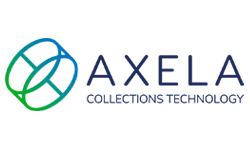
Enforcing collections can be painful, for the homeowner obviously, but also for the members of the Board. The process is time-consuming, expensive, and often results in strained relationships. Sometimes it seems easier to simply write off the bad debt and let everyone move on. But ignoring delinquencies can affect your association’s budget, and less money coming in means the owners who do pay on time have to bear the consequences of those who don’t.
Whether you’re passing delinquent accounts off to a lawyer or simply ignoring them, traditional methods of collecting assessments are fundamentally flawed.
It’s high time we rethink our strategy, ensuring that our approach to collections is as fair and transparent as possible.
Prioritizing Punishment over Payment
The standard process for dealing with delinquencies places a priority on legal action, leading to foreclosure, and ultimately selling the home out from under the owner. It punishes those who are often already struggling, and fails to provide the flexibility needed to handle the financial situations homeowners are in.
To make matters worse, a legal solution doesn’t necessarily mean full recovery of the delinquent amount the association is owed, meaning you’ve put your homeowners and yourselves through the wringer for a lackluster result.
Besides the emotional toll, legal solutions are costly, impacting the cash flow and financial health of the association. Board members, caught between the need to be fiscally responsible for the community and their empathy for the homeowners’ situation, may feel overwhelmed and disengaged.
This process is not only ineffective but can also be dehumanizing, exacerbating an already difficult situation for homeowners who find themselves behind on dues. The result is a collection process fraught with tension — one that can divide communities and deteriorate the trust residents place in their association’s governance.
A New Approach to HOA Collections
The way community associations approach delinquency collections needs a complete overhaul. This means moving away from punitive measures and embracing a process that values fairness, transparency, open communication, and flexibility.
• Fairness:
Every homeowner deserves to be treated equitably, with the understanding that financial circumstances can and do change. Arbitrary penalties and a one-size-fits-all approach to collections can create unnecessary hardship and resentment.
• Transparency:
Assessments, fees, and payment terms need to be clearly communicated to avoid surprises. This includes providing detailed breakdowns and explanations for dues, so homeowners understand exactly what they are paying for.
• Open Communication:
Proactive and respectful dialogue between homeowners and the association can prevent issues from escalating. A good collections process enables both parties to work together towards a solution.
• Flexibility:
Offering payment plans or adjustments can make a significant difference for homeowners navigating financial hurdles. Flexibility demonstrates that the association prioritizes the well-being of its members over rigid adherence to protocols.
Transform Your Collections Process
HOA and Condo association board members have the power to transform the collections process. By championing a method that focuses on recovery over punishment, you ensure not just the financial health of your association but also the integrity and cohesion of your community. Moving to a more humane and effective approach is not just an option, it’s a responsibility.
To dive deeper into understanding the five fundamental flaws of the standard HOA collections process and how you can prevent these costs, we invite you to explore our free ebook today and take the first step towards a more equitable and successful approach to HOA collections.
It’s time we all reflect on the true essence of community living and ensure our collections practices uplift, rather than undermine, this vision. Make a move toward a future where the financial stability of your association doesn’t come at the cost of your community members.

